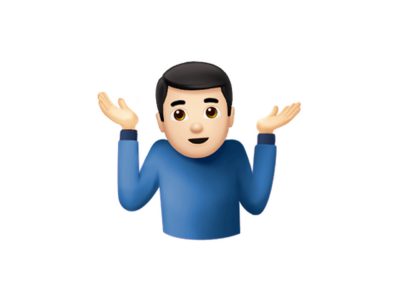
Recently, we spoke about ayin tovah – positive perception of others.
Ayin tovah is a beautiful thing. It’s something we all value. Something we all wish we were better at.
Because, yes, many of us could do with a fair measure of ayin tovah improvement.
Why? Why do so many find it so challenging to see people – things – life – in a positive light?
Let’s start with Rabbeinu Yonah’s definition: that ayin tovah equates to the middah of nedivus, giving.
What’s hard about giving? Well, giving generally means giving up something of our own. But what could we possibly be giving up when we build a positive worldview? What do we lose when we look for the good in someone else?
We lose reliance on one of our basic survival skills – our tendency to seek certainty about life.
The reason we humans so rapidly categorize and “box” people is that our brains are wired to seek sureness. To search for patterns and use them to make life predictable. We analyze our life experiences and turn them into wisdom for the future – wisdom to help us solve problems, produce, and succeed.
Western society channels this primal instinct by valuing those with answers… as opposed to those with questions. People who need to ask questions are deemed ignorant. The scholar who answers them, of course, is lauded as the learned one. And woe unto that scholar if he can’t answer his underlings’ questions.
Torah, however, sees things differently.
How does Pirkei Avos (4:1) define a “wise person?” Not “he with all the answers.” Not “he with the highest IQ.” No. “He who learns from all others.”
Learns. In the present tense. A true wise man is someone who is open to learning. Open to quieting his craving to have everything figured out. Open to possibilities he can’t yet see.
Rabi Yehuda Hanasi, compiler of the Mishna, remarked (Makkos 10a) that he learned more from his students – those with lesser knowledge, those who had come to learn from him – than from anyone else.
Why was this towering scholar so open to learning from his underlings, his inferiors? Because he understood that Torah doesn’t just want us to know things. Torah wants us to be constantly learning. To live in a state of exploration. Why? Because when we quantify knowledge and decide we know something, we “close the book” on that topic. Only once we take Chazal’s recommendation (Brachos 4a) to get used to saying “I don’t know,” will we be surprised by yet more, yet fresher and deeper wisdom.
Alright, you might be thinking, we all know that Torah is endlessly deep. So when it comes to Torah, I’ll open myself up to learning more. But what does this have to do with people, and how I perceive them?
Commenting on a Midrash on Koheles, Chazal point out that the same Hebrew letters used to spell “adam,” man, spell the word “mi’od.” This teaches us that man, too, is infinite. Man, too, contains limitless potential. And just as when we open ourselves up to exploring Torah, we discover new depths, when we open ourselves up to exploring other people, we’re constantly surprised by the good we discover in them.
That’s ayin tovah. Giving up a bit on that human need for clarity, for “I’ve got this figured out,” and allowing for uncertainty. For possibility. For this person whose measure we’ve always had to show us new numbers, new dimensions.
When we give a little of our need for certainty, we create space for others’ greatness to blossom. We make it possible for our all-star athlete child to lean into the academic side buried by years of living up to others’ perceptual expectations. We make it possible for that troublemaker student to nurture the positive leadership qualities nobody bothers to notice.
Let’s become “wise men.” Let’s live a bit more in a state of exploration. We’ll be creating space for those around us to flourish. And soon enough, we’ll be able to delight in their growth.



















